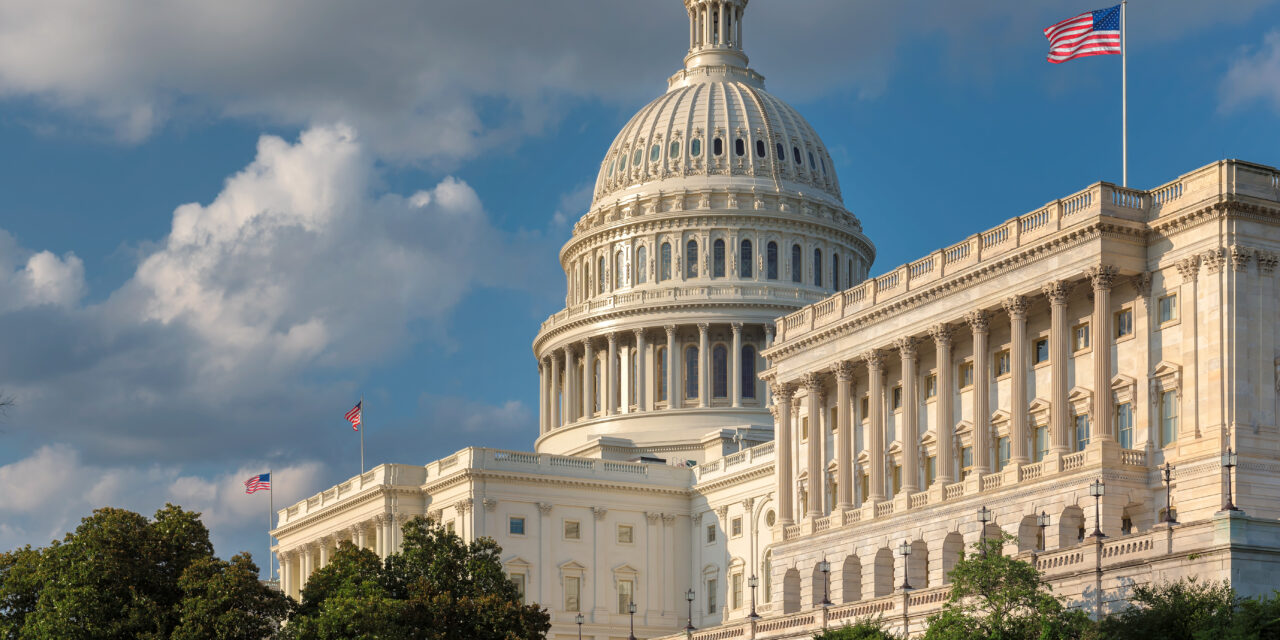Headlines of unnamed national security threats involving Russian space nukes monopolized most of this past Wednesday’s news cycle – until a shooting at the Kansas City Chiefs’ Super Bowl parade shifted focus.
Tensions with Russia brings back memories for many of a certain age, but the peculiar positioning of the reported crisis was very much a reflection of modern political and cultural dysfunction.
It all started when a member of Congress cryptically shared news of a developing international threat. Members of Congress were invited to come to the Capitol and view the report in a secure location. A source qualified it as “very concerning and very sensitive … a big deal.”
Some reported the news was leaked because elected officials didn’t trust it would be taken seriously.
Additional details emerged as the day wore on, noting the threat involved Russia’s capability of deploying nuclear weapons in outer space that could or would disable U.S. satellites. Of course, such action would devastate our communication systems and trigger untold global consequences.
It didn’t take long before analysts, critics, skeptics, and conspiratorialists took to social media and television to weigh in.
Some suggested there wasn’t any crisis at all, but rather the story was a devious way to shore up international aid for Ukraine in their war against Russia. In the interest of transparency, others called for the immediate declassification of the intelligence.
Adding fuel to the fire was Tucker Carlson’s highly publicized interview last week with Vladimir Putin. Reaction to that controversial sit-down spanned the spectrum from some calling Carlson a treasonous enemy of the state to others praising him and even lauding Putin as a clear and straightforward leader.
Underlying and framing much of this speculation and conjecture is a deep and growing distrust in our government. Of course, skepticism and frustration with bureaucracy have existed for a long time. In fact, this very sentiment fueled the American Revolution with Great Britain. In more recent years, many Americans have resonated with and appreciated Ronald Reagan’s famous quip that “The nine most terrifying words in the English language are: ‘I’m from the Government, and I’m here to help.’”
But however evergreen wariness and cynicism may be of Big Brother, the corrosiveness of it can’t be overstated. Whenever and wherever there’s a lack of trust, relationships break down and suspicions go up. Whether in a marriage in a home or in a White House or state house administration, distrust leads to metaphorical disease and outright dysfunction.
As Christians, we’re “subject to governing authorities” (Romans 13:1), but that allegiance isn’t sacrosanct. When Peter and the apostles were chastised for ignoring the government and preaching about Jesus, they replied, “We must obey God rather than men” (Acts 5:29).
Circumstance and context are important.
What radical activists and raging secularists don’t seem to understand is that good Christians make for excellent citizens. Instead of trying to censor, stifle or outright curtail Christian expression in the culture, they’d be much better off allowing the free exercise of faith.
When you trust Christians, those Christians will in turn be more likely to trust or at least give those in power the benefit of the doubt. The First Amendment acknowledged the collective good people of faith possess – and yet for decades now, antagonists have been trying to undermine and silence followers of Jesus.
Because governments have trusted Christians, hospitals have been built, sick people have been cared for and cured, disaster victims have been rescued, and children have been educated, mentored, protected, and even adopted. And that’s just scratching the surface.
“Trust men and they will be true to you,” observed Emerson. “Treat them greatly and they will show themselves great.”
If we want to strengthen and restore the foundations of America, government officials can begin by reestablishing and renewing trust with Christians. That’s accomplished several ways, but first and foremost by respecting and extending the Constitutionally authorized religious freedoms our forefathers fought and died to protect.
Image from Shutterstock.






